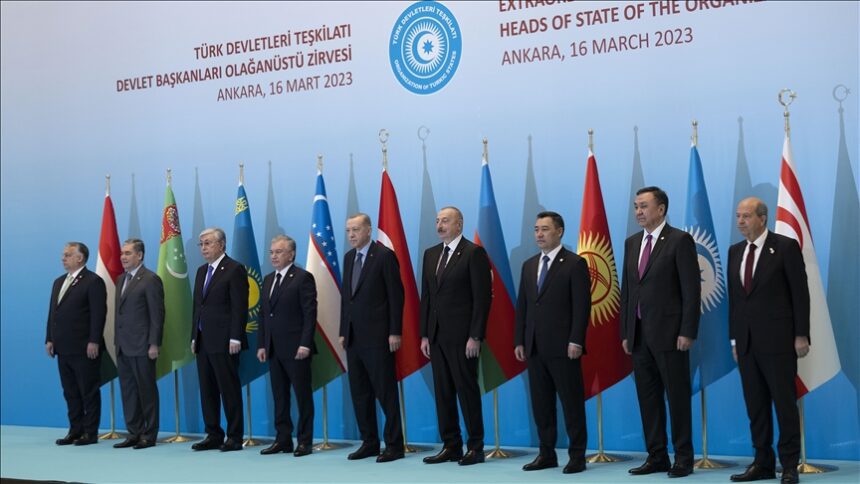In October 2024, Turkey’s Ministry of Education declared that educational institutions would substitute the term “Central Asia” with “Türkistan” in their geography and history curricula. This alteration illustrates the nationalist drive to highlight Turkey’s cultural and historical connections with the Turkic-speaking communities in Central Asia. Supported by far-right nationalist factions, the term “Türkistan” is rooted in the idea of “Turan,” which anticipates a pan-Turkic unity that originated in the late 19th century. This ideology, akin to the European notions of pangermanism or panslavism, advocates for unity among Turkic peoples extending from Central Asia to certain regions of Eastern Europe.
Turkey’s adoption of “Türkistan” strategically positions it as the focal point of a collective historical and cultural identity. Advocates with nationalist views contend that Turkey and Turkistan are inherently connected, linked by shared ethnicity and language, even when considering the historical and cultural transformations of the Turks throughout the ages. The historical entry of the Turks into Anatolia in 1071 involved interactions with diverse local populations, including Kurds, Armenians, and Greeks. However, nationalists assert that the connections to Central Asia are vital and continue to shape the identity of modern Turkey.
This revision is not without controversy. The Russian government, which has a vested interest in maintaining influence over Central Asia, views Turkey’s actions with suspicion. Historically, Central Asia has been within Russia’s sphere of influence, particularly during the Soviet era. Turkey’s recent strategy, especially through the use of the term “Türkistan,” appears to pose a challenge to Russia’s influence in the region, prompting worries about heightened geopolitical rivalry.
The notion of “Türkistan” encompasses wider implications that extend beyond simple terminology. This indicates Turkey’s intention to assume a leadership role within the Turkic world, encompassing both political and cultural dimensions. Turkey has notably enhanced its relationships with Central Asian nations in recent years, marked by a rise in trade, diplomatic engagements, and cultural interactions. The rebranding within the educational system reinforces Turkey’s strategic geopolitical objectives, aiming to consolidate Turkic-speaking nations under its influence.
This initiative corresponds with the rising impact of Turkey’s far-right nationalist movements, which have progressively influenced the nation’s domestic and foreign policies. Turkey’s ruling elites seek to cultivate a sense of pan-Turkic unity to mobilize national pride, reinforce Turkey’s status as a regional power, and expand influence in regions historically linked to Turkic peoples.
This policy shift indicates Turkey’s wider aspirations under President Recep Tayyip Erdoğan, highlighting the interplay between nationalism and foreign policy in redefining Turkey’s position in the international arena. The incorporation of “Türkistan” into educational frameworks exemplifies the transformation of national identity, which is likely to reshape the geopolitical dynamics of Central Asia and its surroundings. This action prompts an examination of the potential long-term implications for Turkey’s relationships with Russia and other regional powers, especially as it seeks to establish a leadership position within the Turkic sphere.
In summary, the substitution of “Central Asia” with “Türkistan” in Turkey’s educational curriculum signifies a significant transformation that goes beyond mere terminology; it indicates a profound evolution in Turkey’s national ideology and geopolitical aspirations. Turkey aims to leverage historical connections and advocate for pan-Turkic unity to broaden its influence in Central Asia, thereby contesting current power structures and establishing itself as a significant actor in the region’s future.
By: NAT Editorial Team



